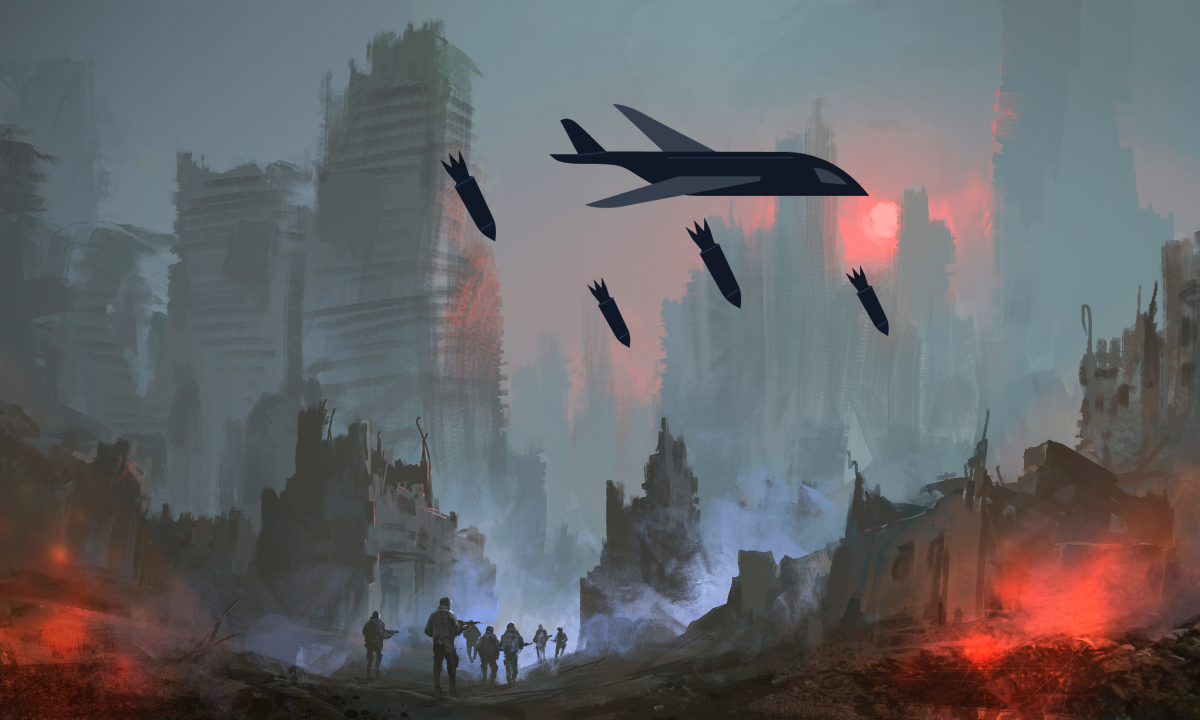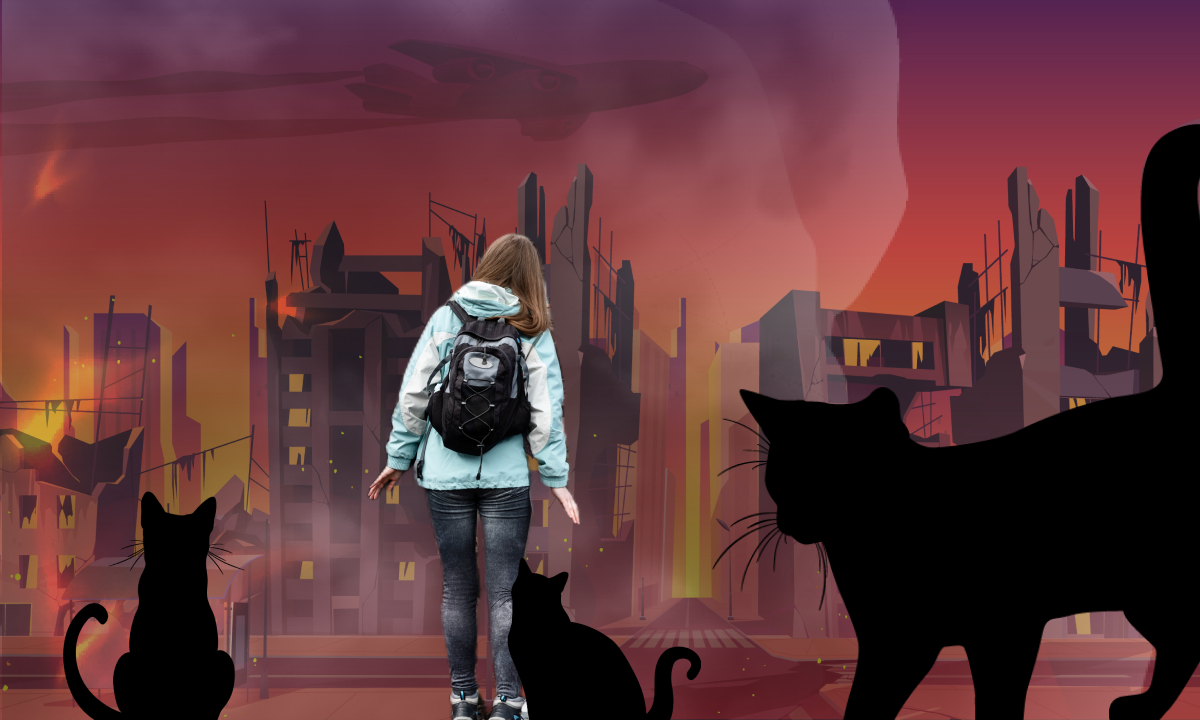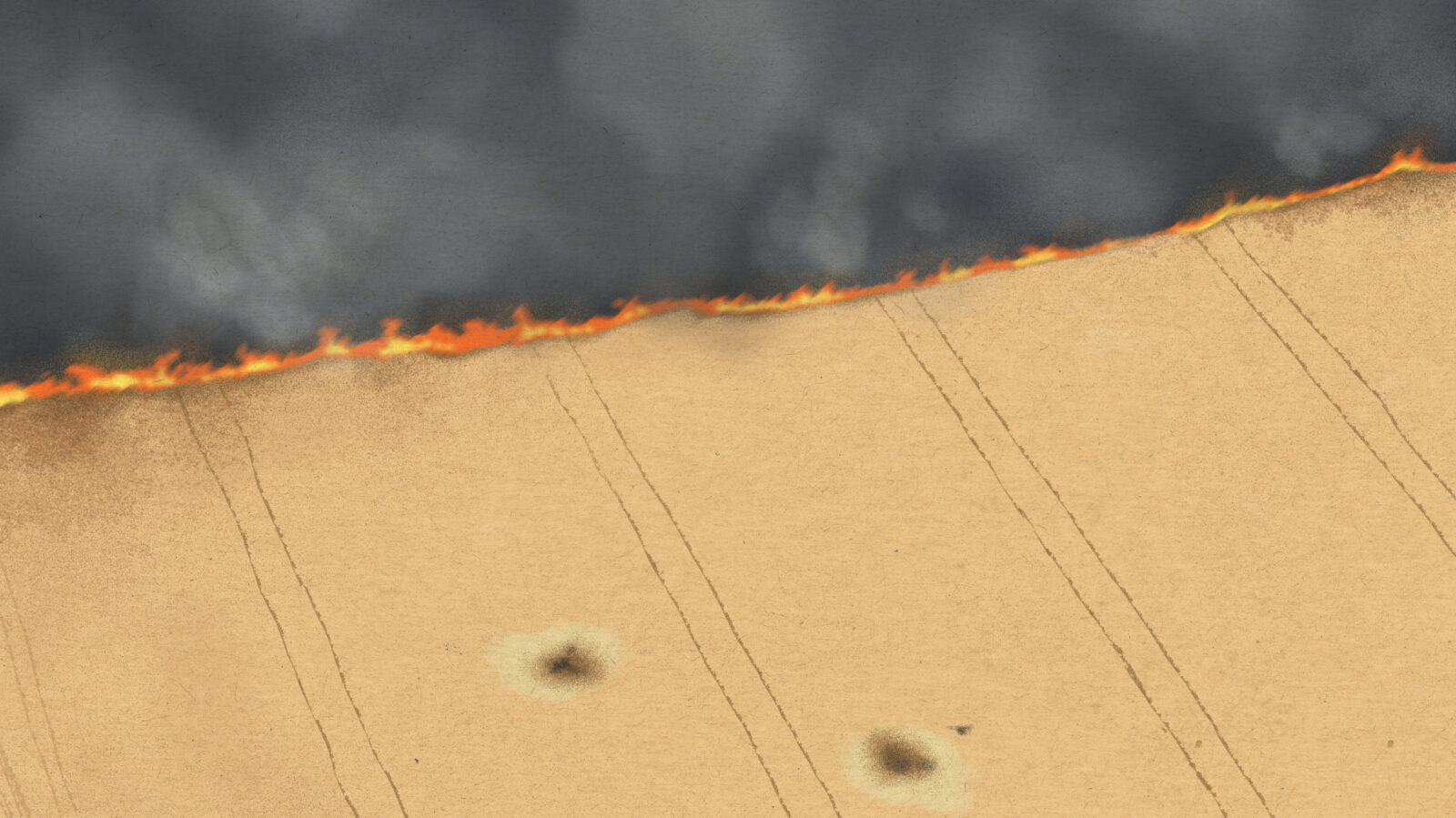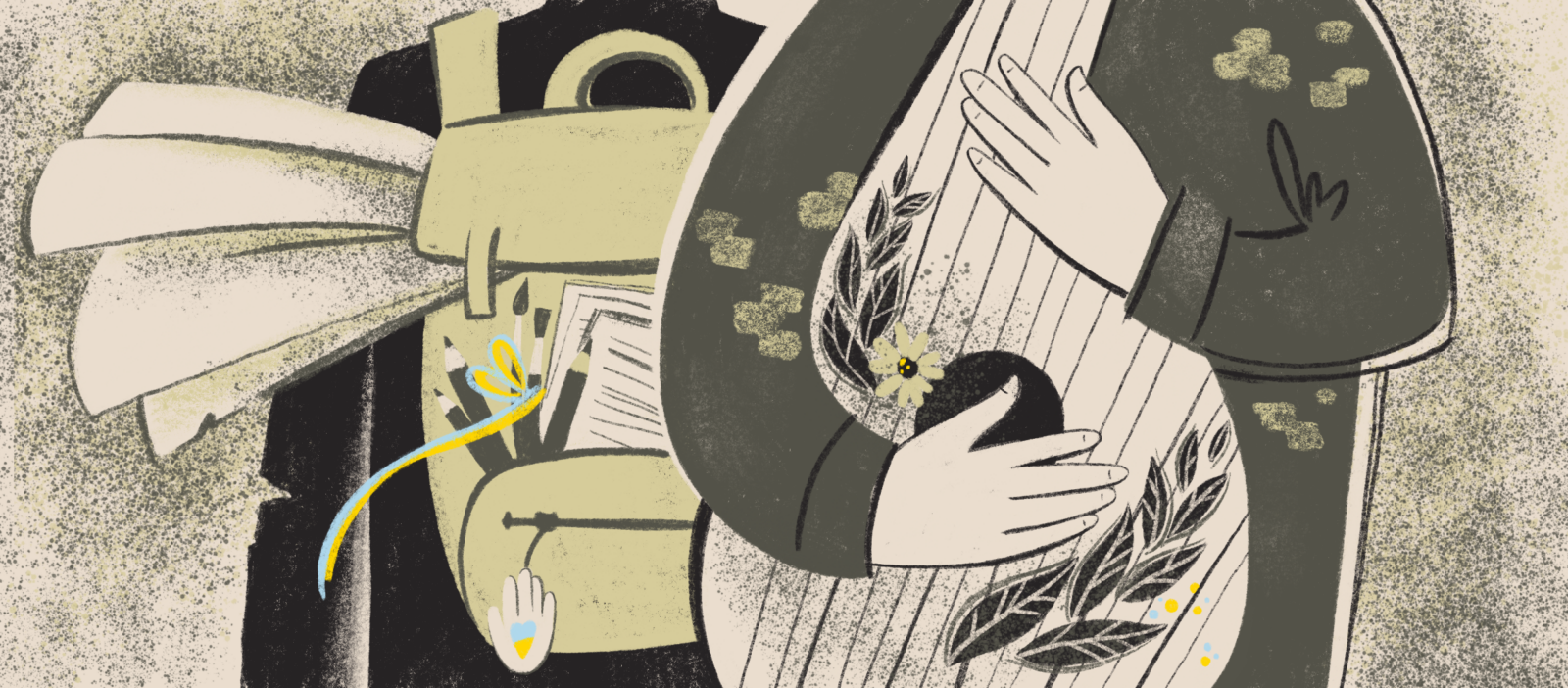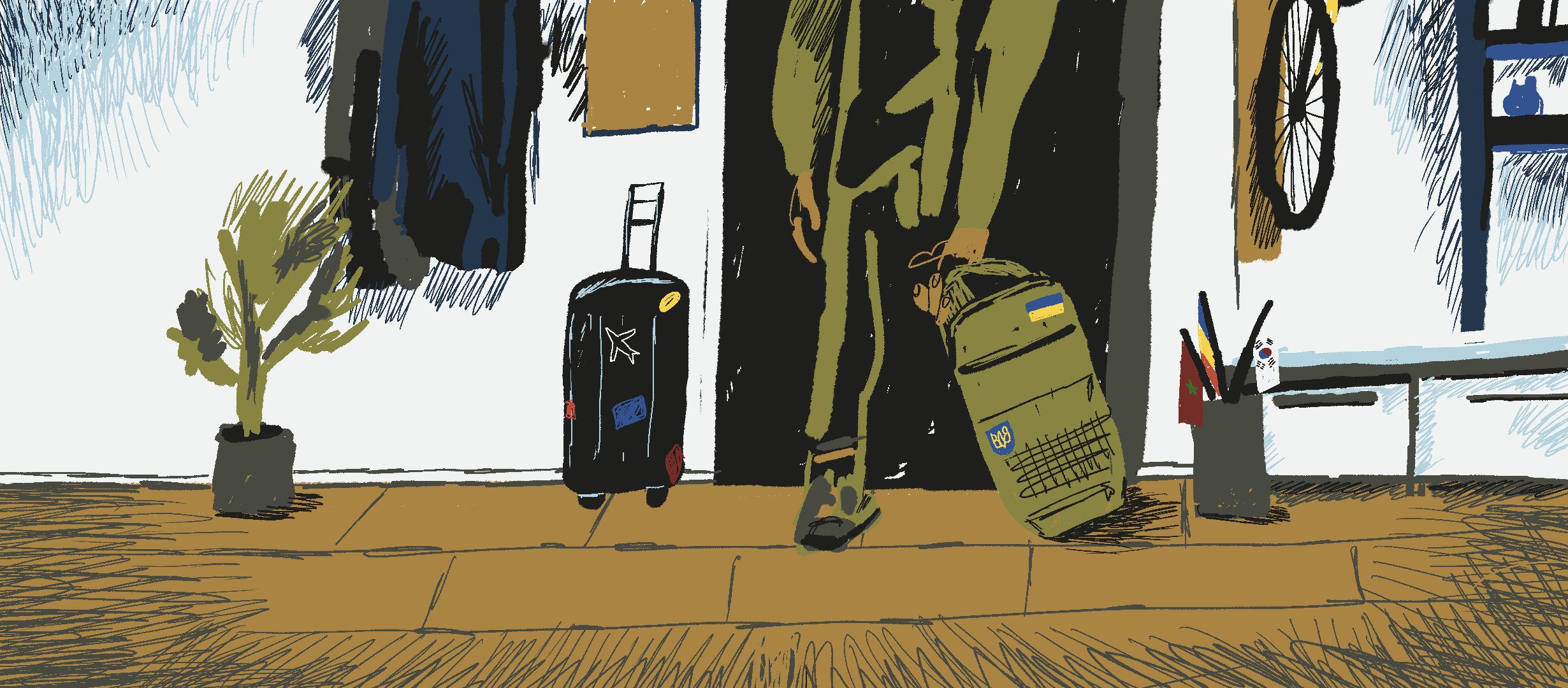Illustrated by Liubov Miau
46-year-old Olexandr Drimanov from Kryvyi Rih had all the formal reasons to stay away from the war that Russia is waging against Ukraine. Two years ago, he was diagnosed with lung cancer. Since then he’s had 40 chemo sessions. He was rejected both by the army and by the Territorial Defense Forces due to his medical condition. Moreover, the man has a 12-year-old son.
“They told me to dig trenches. I would make one or two digs with a shovel and fall from exhaustion. I thought it would be easier to make Molotov cocktails, but the fumes made me cough and suffocate. They forced me out.”
Finally he saw an ad from some volunteers looking for a driver. Before he got his diagnosis, Olexandr had worked as a minicab driver and a trucker. So he offered his services. His task was to deliver humanitarian supplies to the Ukrainian troops based near an occupied city in the south of Ukraine.
“The volunteer girl asked me if I realized that any trip may turn into a one-way trip. I said I did, but I had nothing to lose. My cancer will kill me anyway,” Olexandr recalls. “Naturally, the girl cried.”
The man loaded medicines into his old red car. He asked his neighbors to look after his son in case he wouldn’t come back and set off.
After he passed the first checkpoints, he realized there would be no support, no corridor and no communication. After the last Ukrainian checkpoint there was an empty road covered with snow.
“While driving, I tried to distract myself and think about the landscape. But deep inside I felt horror,” Olexandr says. “Still, I never thought of driving back. At the crossing, I could pick either the road through the village or the detour. I took the detour. I saw a gas station with parked cars and people drinking coffee. No military. So I drove on.”
He had driven 1.5 kilometers when three men wearing spotted Russian uniforms ran out into the road and started shooting. Olexandr made a sharp turn and rushed back. “I think they would have shot me dead if they wanted to. But it looked more like a warning. They didn’t want me to drive further.”
Only on the way back he noticed bullet holes in other cars at the gas station. The men sitting there turned out to be the local hunters. They held the line and stole Russian military equipment whenever they could.
At last Olexandr arrived at the destination and delivered the precious cargo. The stressful experience he had left him stuttering. But he kept on delivering humanitarian supplies for the soldiers.
“Would you stop if you were me? When armed people break into your home and they think they can kill you, rob you, humiliate you? My son doesn’t want me to go. I try to leave when he is still asleep. It’s him I fear for,” Olexandr says.
After the war Olexandr dreams to overcome cancer, get back to work, save money for a new car and stay independent. Now he is paid 1934 UAH (about $65) per month as a disabled person. He also takes part-time jobs. His family helps him with his therapy.
“I believe in our victory. Even if you are ill, disabled or crippled, you still must try to do what you can. None of us should hide,” Olexandr says.





